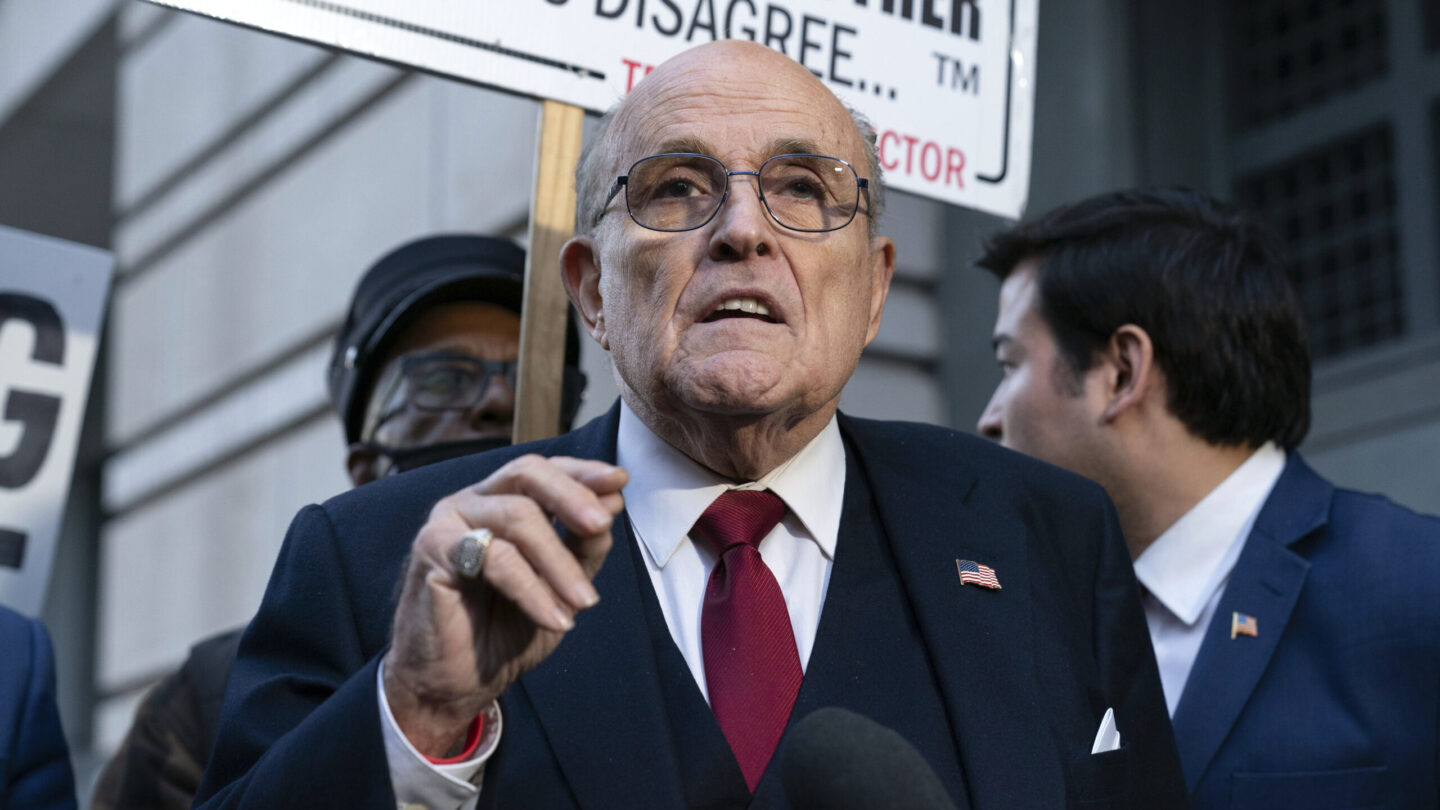Rudy Giuliani has agreed to a last-minute deal to end his personal bankruptcy case and pay about $400,000 to a financial adviser hired by his creditors, avoiding a potential deep-dive into the former New York City mayor’s finances that was threatened by a federal judge.
The agreement was filed Wednesday in federal court in White Plains, New York. That came nearly three weeks after a judge there threw out Giuliani’s bankruptcy case after criticizing him for repeated failures to disclose his income sources and to comply with court orders.
But after Judge Sean Lane dismissed the bankruptcy case, Giuliani’s lawyers said he didn’t have the money to pay the creditors’ forensic financial adviser as required under bankruptcy laws, according to the judge. That led Lane last week to order all parties to submit proposals on how to end the case by noon Wednesday and prepare for a possible evidentiary hearing on Giuliani’s finances if no deal was reached.
The judge has to sign off on the agreement, which was filed less than three hours before the deadline.
The creditors include former Georgia election workers Ruby Freeman and Wandrea “Shaye” Moss, who won a $148 million defamation judgment against Giuliani for his false ballot fraud claims against them related to the 2020 election. Freeman and Moss said Giuliani pushed Donald Trump’s lies about the election being stolen, which led to death threats that made them fear for their lives.
In the agreement filed Wednesday, Giuliani will give his lawyers $100,000 to help pay the creditors’ financial adviser, New York-based Global Data Risk, and pay the rest of the firm’s expenses from the proceeds of selling either his New York City apartment or Florida condominium, which are worth an estimated $5.6 million and $3.5 million, respectively, according to court documents.
Global Data Risk is also allowed to put liens on the New York City and Florida properties to make sure Giuliani pays all its fees, under the agreement.
Rachel Strickland, a lawyer for Freeman and Moss, said in a court filing earlier this month that Global Data Risk racked up $400,000 in expenses during the bankruptcy case.
Strickland and Giuliani’s bankruptcy lawyers did not immediately return messages seeking comment Wednesday.
Lane had said it was “troubling” that Giuliani was saying he couldn’t pay Global Data Risk.
“Even assuming that the Debtor does not have the funds on hand to immediately pay these bankruptcy expenses, he certainly has considerable assets upon which he can draw to pay such expenses,” Lane said in a July 25 order.
Freeman and Moss, meanwhile, are now free to seek enforcement and payment of the $148 million verdict in federal court in Washington, D.C., where they won their case. The bankruptcy had put a hold on collection efforts.
The bankruptcy was one of a host of legal woes consuming the 80-year-old Giuliani, the ex-federal prosecutor and 2008 Republican presidential candidate who was once heralded as “America’s Mayor” for his calm and steady leadership after the Sept. 11, 2001, terrorist attacks.
He recently was disbarred as an attorney in New York after a court found he repeatedly made false statements about Trump’s 2020 election loss. He is also facing the possibility of losing his law license in Washington after a board in May recommended that he be disbarred.
In Georgia and Arizona, Giuliani is facing criminal charges over his role in the effort to overturn the 2020 election. He has pleaded not guilty in both cases.
When he filed for bankruptcy, Giuliani listed nearly $153 million in existing or potential debts, including almost $1 million in state and federal tax liabilities, money he owes lawyers, and many millions of dollars in potential judgments in lawsuits against him. He estimated he had assets worth $1 million to $10 million.
In recent financial filings in the bankruptcy case, he said he had about $94,000 cash in hand at the end of May while his company, Giuliani Communications, had about $237,000 in the bank. A main source of income for Giuliani over the past two years has been a retirement account with a balance of just over $1 million in May, down from nearly $2.5 million in 2022 after his withdrawals, the filings say.









